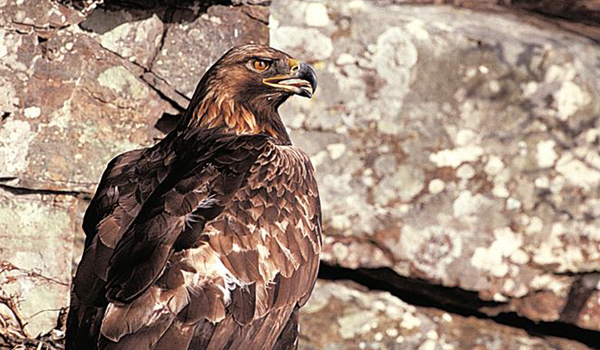Latest figures show fall in recorded wildlife crime in Scotland
Newly-released figures show that overall recorded wildlife crime in Scotland fell by seven per cent in 2021/22, down from 308 offences the previous year to 286.
The report from Chief Statistician for Scotland shows there were noticeable decreases in recorded crime for fish poaching (from 110 to 49 offences) and hunting with dogs (from 44 to 13 offences).
Increases were seen for birds (from 29 to 74 offences) and ‘other wildlife offences’ (from 43 to 73 offences) – both of these can, in part, be attributed to Police Scotland’s Operation Tantallon, which targeted offences against peregrine falcons, said the Chief Statistician.
The Crown Office and Procurator Fiscal Service received 77 cases relating to wildlife crime, with fish poaching being the most common category (23 cases).
Criminal proceedings statistics in 2021/22 show that 18 people were proceeded against for wildlife crimes – which the Chief Statistician said represents a return to a more “typical level” after the very low numbers seen in 2020/21 due to the Covid-19 pandemic.
Of these 18 people, 11 were found guilty for at least one offence. Looking over the period (2017/18 to 2021/22), the average (five-year) conviction rate is 76 per cent, with a monetary penalty being the most common punishment.
The Scottish Society for the Prevention of Cruelty to Animals (Special Investigation Unit) took part in 143 wildlife crime investigations in 2021/22, including 52 where it assisted a police-led investigation, and 91 where the Scottish SPCA was the sole investigator.
Some types of wildlife crimes (relating to badgers, bats, trade in endangered species, freshwater pearl mussels, poaching and coursing and raptor persecution) are designated as being “priority areas”.
Police Scotland provides further detailed analysis to allow these areas to be separately identified from within the broader crime classifications of the recorded crime data presented earlier.
Between 2020/21 and 2021/22, there was a sharp drop in offences identified as relating to poaching and coursing (from 212 to 101). Operation Tantallon was the “key factor” behind increases between 2020/21 and 2021/22 in offences for trade in endangered species (from one to 46) and raptor persecution (from 11 to 24).
Offences for other priority areas in 2021/22 were broadly similar to preceding years, with 13 badger persecution offences identified, two freshwater pearl mussels offences and no bat persecution offences.
Ross Ewing, director of Moorland at Scottish Land and Estates, said: “Rural businesses and communities are playing a vital role in combatting the nature and biodiversity crises and working together to drive down wildlife crime is a collective aim for everyone.
“This wildlife crime report illustrates the ongoing progress in many areas and demonstrates where effective policing, such as that conducted through Operation Tantallon, which targeted offences against peregrine falcons, is so important.
“The decrease in offences related to fish poaching, hare coarsing and hunting with dogs is welcome and there has been an increased effort by stakeholders to raise public awareness of these incidents. The Hunting with Dogs (Scotland) Act came into force in October and we are waiting to see how this impacts on trends in future statistics.
“Crimes against birds of prey continue to be a key priority for government and police and whilst offences rose this year, we are pleased that the effectiveness of Operation Tantallon is highlighted which accounted for 15 of the 24 recorded offences. With just nine other offences recorded, incidents remain at very low levels and we are hugely supportive of Police Scotland in their work to bring perpetrators to justice. Raptor crime is wholly unacceptable, and our members are committed to assisting government and the police in this area.
“While the publication of this report is undoubtedly helpful in targeting resources towards key trends in the data, the lag between the period to which this data relates (2021/22) and the publication of the report (2024) makes it challenging for Police Scotland to respond in a timeous manner.
“It would be helpful if the lag could be minimised as far as possible in future years.”


